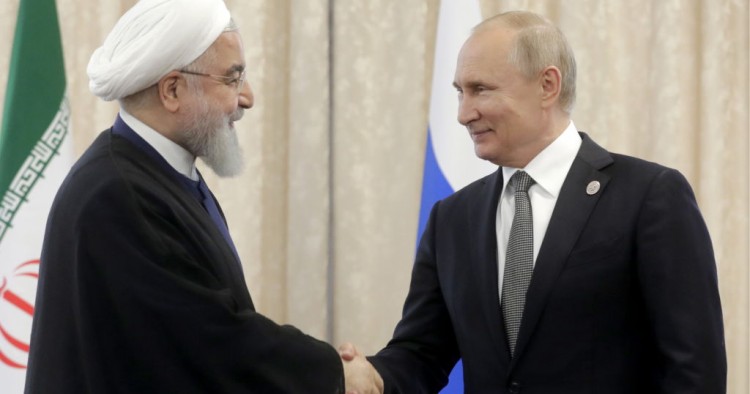There is nothing like a presidential election campaign to spark debate about the direction of U.S. foreign policy toward the Middle East, and this election season is certainly no exception.
John Bolton in his newly released book is dismissive of diplomatic initiatives as a way to deal with Iran, including but not limited to the Joint Comprehensive Plan of Action (JCPOA), negotiated by the Obama administration, and abrogated by President Donald Trump. Taking a completely different tack, Daniel Benaim, a senior fellow at American Progress, and Jake Sullivan, a nonresident fellow at the Carnegie Endowment for International Peace, both close to the Biden campaign, expressed in an op-ed published by Foreign Policy in May their support for the United States getting back on track with a nuclear deal. In that op-ed, they outline a role for the United States in creating a regional dialogue, with a particular focus on tamping down hostilities between Iran and Saudi Arabia.
We agree that the right path for the United States is to pursue nuclear and regional diplomacy. These diplomatic efforts should try to defuse tensions and provide forums for dialogue among the major regional players, like Saudi Arabia, Iran, Turkey, and Egypt. Israel too should be encouraged back on the path toward negotiation with the Palestinians, and if that is successful, with the wider Arab and Muslim world.
But it is important that any policy prescriptions be based on a clear-eyed analysis of Middle East regional dynamics and of the likely constraints that will be imposed on the next presidential administration, whether that be under Joe Biden or Donald Trump. The Middle East has become a conflict trap, and while constructive diplomacy by the United States can be a stabilizing force, awareness of the limitations of what various tracks of negotiations with Iran can deliver is equally important.
Continue on The National Interest
Photo by Mikhail Metzel\TASS via Getty Images
The Middle East Institute (MEI) is an independent, non-partisan, non-for-profit, educational organization. It does not engage in advocacy and its scholars’ opinions are their own. MEI welcomes financial donations, but retains sole editorial control over its work and its publications reflect only the authors’ views. For a listing of MEI donors, please click here.













